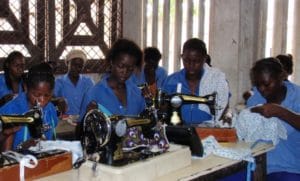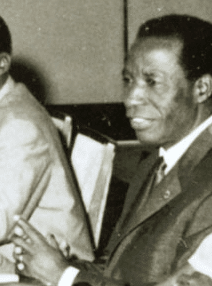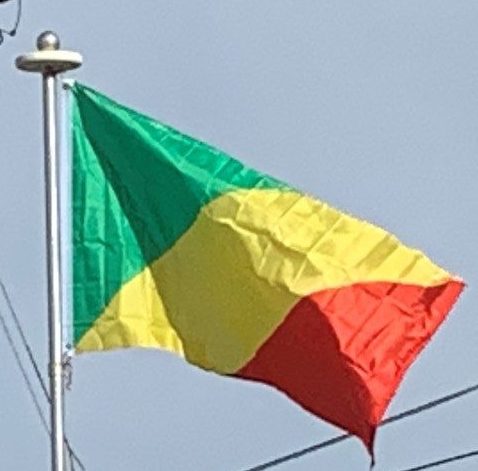During the Nazi occupation of France during World War II, Brazzaville functioned as the symbolic capital of Free France between 1940 and 1943. The Brazzaville Conference of 1944 heralded a period of major reform in French colonial policy. Congo benefited from the postwar expansion of colonial administrative and infrastructure spending as a result of its central geographic location within AEF and the federal capital at Brazzaville. It also received a local legislature after the adoption of the 1946 constitution that established the Fourth Republic.

Following the revision of the French constitution that established the Fifth Republic in 1958, the AEF dissolved into its constituent parts, each of which became an autonomous colony within the French Community. During these reforms, Middle Congo became known as the Republic of the Congo in 1958 and published its first constitution in 1959. Antagonism between the Mbochis (who favored Jacques Opangault) and the Laris and Kongos (who favored Fulbert Youlou, the first black mayor elected in French Equatorial Africa) resulted in a series of riots in Brazzaville in February 1959, which the French Army subdued.
New elections took place in April 1959. By the time the Congo became independent in August 1960, Opangault, the former opponent of Youlou, agreed to serve under him. Youlou became the first President of the Republic of the Congo. Since the political tension was so high in Pointe-Noire, Youlou moved the capital to Brazzaville.
Post-Independence Era:
The Republic of the Congo received full independence from France on 15 August 1960. Youlou ruled as the country’s first president until labour elements and rival political parties instigated a three-day uprising that ousted him. The Congolese military briefly took charge of the country, and installed a civilian provisional government headed by Alphonse Massamba-Débat.
Under the 1963 constitution, Massamba-Débat was elected President for a five-year term.

During Massamba-Débat’s term in office the regime adopted “scientific socialism” as the country’s constitutional ideology. In 1965, Congo established relations with the Soviet Union, the People’s Republic of China, North Korea and North Vietnam. Massamba-Débat’s regime also invited several hundred Cuban army troops into the country to train his party’s militia units and these troops helped his government survive a coup d’état in 1966 led by paratroopers loyal to future President Marien Ngouabi. Nevertheless, Massamba-Débat was unable to reconcile various institutional, tribal and ideological factions within the country and his regime ended abruptly with a bloodless coup in September 1968.
Marien Ngouabi changed the country’s name to the People’s Republic of the Congo, declaring it to be Africa’s first Marxist–Leninist state. He was assassinated in 1977.
Ngouabi, who had participated in the coup, assumed the presidency on 31 December 1968. One year later, President Ngouabi proclaimed Congo Africa’s first “people’s republic”, the People’s Republic of the Congo, and announced the decision of the National Revolutionary Movement to change its name to the Congolese Labour Party (PCT). He survived an attempted coup in 1972 but was assassinated on 16 March 1977. An 11-member Military Committee of the Party (CMP) was then named to head an interim government, with Joachim Yhombi-Opango to serve as President of the Republic. Two years later, Yhombi-Opango was forced from power and Denis Sassou Nguesso become the new president.
